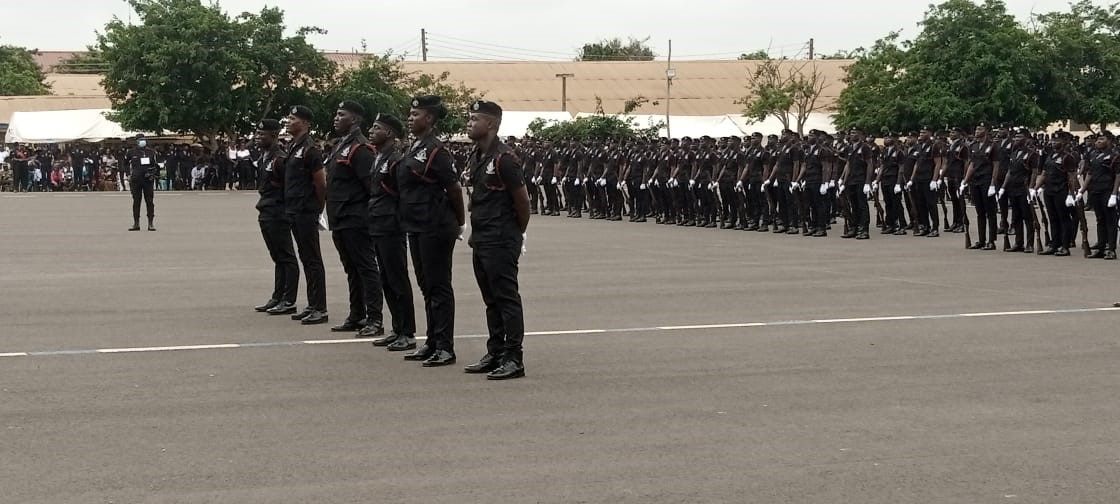All new police recruits who pass -out of the police training schools can now swim and drive as the Police training module has been reviewed to make trainees more efficient in responding to current crime trends.
This was disclosed by the Inspector-General of Police Dr. George Akuffo Dampare at a public lecture on Policing at the Kwame Nkrumah University of Science and Technology (KNUST).
According to the IGP, the police training school module has been changed to make it more practical and effective.
“The training school module has been changed to make it 75% practical and 25% theoretical. Now all new police officers who leave the training school can swim and drive as part of the training so they can meet the criminals anywhere. If the criminals choose to swim, the officers will meet them. We are taking all necessary measures to ensure that we protect lives and properties”.
The Director General of Administration, Ghana Police Service, COP Christian Tetteh Yohuno recently said in Koforidua when addressing the passing out parade of 416 Police recruits made up of 50 under cadets from Koforidua Police training school that, the Inspector General of Police Dr. George Akuffo Dampare has introduced a paradigm shift in recruit training modules and curriculum as part of the broader vision of the Police administration to meet evolving complexities of crime and improve professionalism.
He said emerging crimes, terrorism, cyber-related crimes, new policing challenges, and changes in the modus operandi of criminals are some of the issues confronting the service.
COP Yohuno said the IGP has therefore standardized recruit training modules and restructured recruit training activities with expanded improved facilities focusing on field training with practical attachment to gain field experience under close supervision of cadet officers.
“Hitherto, the emphasis was mainly on the enhancement of recruit’s knowledge on the laws they are expected to enforce when they pass out. But now, equal emphasis is placed on field training activities such as riding, driving, swimming, crowd control, incident, and disaster management, crime scene management, traffic management, radio communication, intelligence gathering, community-based patrols, charge office management, access control, arrest and search procedures, use of force procedures, human rights, clients care and professional police ethics, tactical progression, weapon handling, and high-risk operation”. COP Tetteh Yohuno announced.
Source: Mybrytnewsroom.com/Obed Ansah




















































